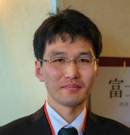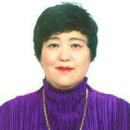4-4 Developing the Agency-Translator Relationship
パネリスト:
フリント・ポール Paul Flint

Paul Flint started his freelance translation career in 1998, and established Y.K. Honyaku Plus in 2003 with business partner Phil Robertson. The company has had its ups and downs but has expanded gradually to provide translation, interpreting, and multilingual printing services in many languages to many large Japanese and foreign companies with the help of about 450 freelance translators and interpreters around the world. The company will celebrate its twelfth anniversary in March 2015.
テイラー・ウイリアム William Taylor

William is a Japanese to English translator. He got his start working in-house for Toshiba as a translator in the Financial Solutions Department, from which he gained in-depth knowledge of stock markets, algorithmic trading, and IT infrastructure. He is now a freelancer, mainly working with translation agencies in Japan. Since going freelance, he has adopted a nomadic lifestyle and has lived out of serviced apartments and hotels while traveling around Asia and other parts of the world. He has been to over 70 different countries, with a good portion of this travel being financed by freelance translation. He has spent the last several months in Tokyo.
冨永 陽 Tominaga Akira

株式会社ホンヤク出版社 テキスト部
1984年生まれ。山口県田布施町出身。大阪の外国語大学に入学するが英語圏での留学経験はなく、2008年に技術系翻訳を扱う株式会社ホンヤク出版社に新卒で入社。普段は、技術文書を相手に悪戦苦闘と戦意喪失を繰り返しながらも、母語と外国語の間さらには母語と母語の間を行き来する中で「何か悟りを得たい」と願っている。最近ではFacebookやTwitterで翻訳について呟く現場が目撃されている。東京都小金井市在住。
モデレーター:
池上 小湖 Ikegami Sako

Sako is a recent returnee to Med/Pharma translation after a 15-year hiatus where she pursued a career in childhood fantasy and teen angst (read: literary translation of children's books). Thus it is with relatively fresh eyes that she views the translation industry. The majority of her work currently comes from various translation agencies in Japan and abroad. She has an advanced degree in clinical pharmacy, has trained in both Japan and the US with experience in hospital pharmacy and R&D in the pharmaceutical industry, and has been a freelance translator for over 20 years.
報告者:リーシーマン Lee Seaman(Seaman Medical, Inc.)
In this popular presentation, a panel of two freelance translators and two agency representatives discussed the freelancer-agency relationship, with active participation from the audience.
Panelists consisted of two freelance translators (William Taylor and Sako Ikegami, who also moderated the panel) and two translation company representatives (Akira Tominaga, and Paul Flint). The audience was made up primarily of freelance translators, with a few in-house translators and translation agency representatives.
How did you get into this business?
Paul Flint: I started in 1998 as a freelancer. Some of the first feedback I got was, “Go buy a dictionary!” But after awhile I got better, and then I started working with another translator. We formed a translation agency 13 years ago, and for a long time, our company was just two guys translating. But in the last 5 years we began to really expand, to the point where we are handling millions of words now. I actually don’t have time to translate anymore, because I’m busy running the company.
Akira Tominaga: First of all, I need to tell you that all the things I say here today are my opinions only, and not those of my translation agency employer. I graduated from Osaka Gaigo Daigaku, then went to work in a translation and publishing company with over 50 years history. I’ve been working there over 5 years. A lot of my work involves checking translations.
William Taylor: I started in-house, and have been freelancing for somewhere between 5 and 10 years, depending on how you calculate it. I spend most of my time on the road, traveling. I don't have a permanent address these days. I like freelancing because of the freedom it gives me.
Sako Ikegami: In college I got an undergraduate degree as a pharmacist, and then went on to get a PharmD. But at that time it was hard for a woman, and I couldn't get much traction in Japanese hospitals or research organizations, so I began doing children's literature. It wasn’t until two years ago that I started working in pharma again, with help from my connections in the translation community.
What are your working hours?
WT: When I’m working, I start at 8 AM and stop at around 11 PM.
PF: At our company, we track our top clients. I start at 8 AM, and I’m available as long as they are still in the office. A good company is there to solve your client's problems. So if they’re there, I’m there.
AT: An agency needs people who are reliable, anything that will make our job easier.
WT: But sometimes a project manager will call me really late. I worry about their health, if they have to stay in the office that late.
Audience: Media hours start at 6:30 AM, and the phone may ring after midnight. Also, you need to be available weekends and public holidays.
What do you do to have time to relax and tune out your work life?
WT: I don't have a clear distinction between home life and work life.
AT: We know that freelancers need to take time off. If we have notice in advance, we can work around it, and then welcome them back when they are available again.
PF: I get family time by waking my kids up earlier in the morning!
How can I become a translator?
PF: Get on translators’ mailing lists, like the one for the Japan Association of Translators, and ask questions. Meet people at conferences like this one and at other networking opportunities. Translate on your own, for practice and to build up a portfolio. Volunteer to translate for NPOs, to get experience.
Audience: Read the Prosperous Translator, the Entrepreneurial Linguist, and the JAT Translator Perspectives. Also, remember that you are building your brand every time you post to a professional mailing list or social media site; make sure you do some research on your own first, so that you can post interesting non-trivial questions and clear, accurate, well-informed answers.
What do you look for in a good agency?
WT: Well, high rates, long deadlines, interesting work, and no calls after midnight (audience laughs). But seriously:
-
Consistently give me large volumes of work with reasonable deadlines
-
Provide clear job instructions about how many characters and what price, with no long paragraphs about company policies.
-
Have quality-control staff that can add value to my translation
Audience:
-
Provide good feedback
-
Give access to the source client
-
Provide rate range before asking for a trial
What do you think of translation trials?
PF: Paid trials are an agency's way of building a relationship with the translator, and due diligence. Taking free trials is the translator's way of building a relationship with the agency.
AT: Agencies can keep an eye out for promising people and tell the project manager to send this new person something small the next time something comes up.
Audience: Sometimes it's possible to establish your presence in other areas, without doing a trial. For example, you can participate in conferences, contribute intelligently to the JAT mailing list, and contribute to Translation Perspectives.
What about agencies that don't pay?
Panel:
-
Consult with your attorney.
-
Chalk it up to experience.
-
Make sure they have 't actually forgotten in-house.
Should a translator handle proofreading work?
WT: Sure, as long as I can make money from it, why not? But you should see the document first.
Audience: Proofreading is not cleaning up the mess!
The lively Q&A discussion continued past the scheduled closing time. We hope this topic will be continued at a future JTF event.
